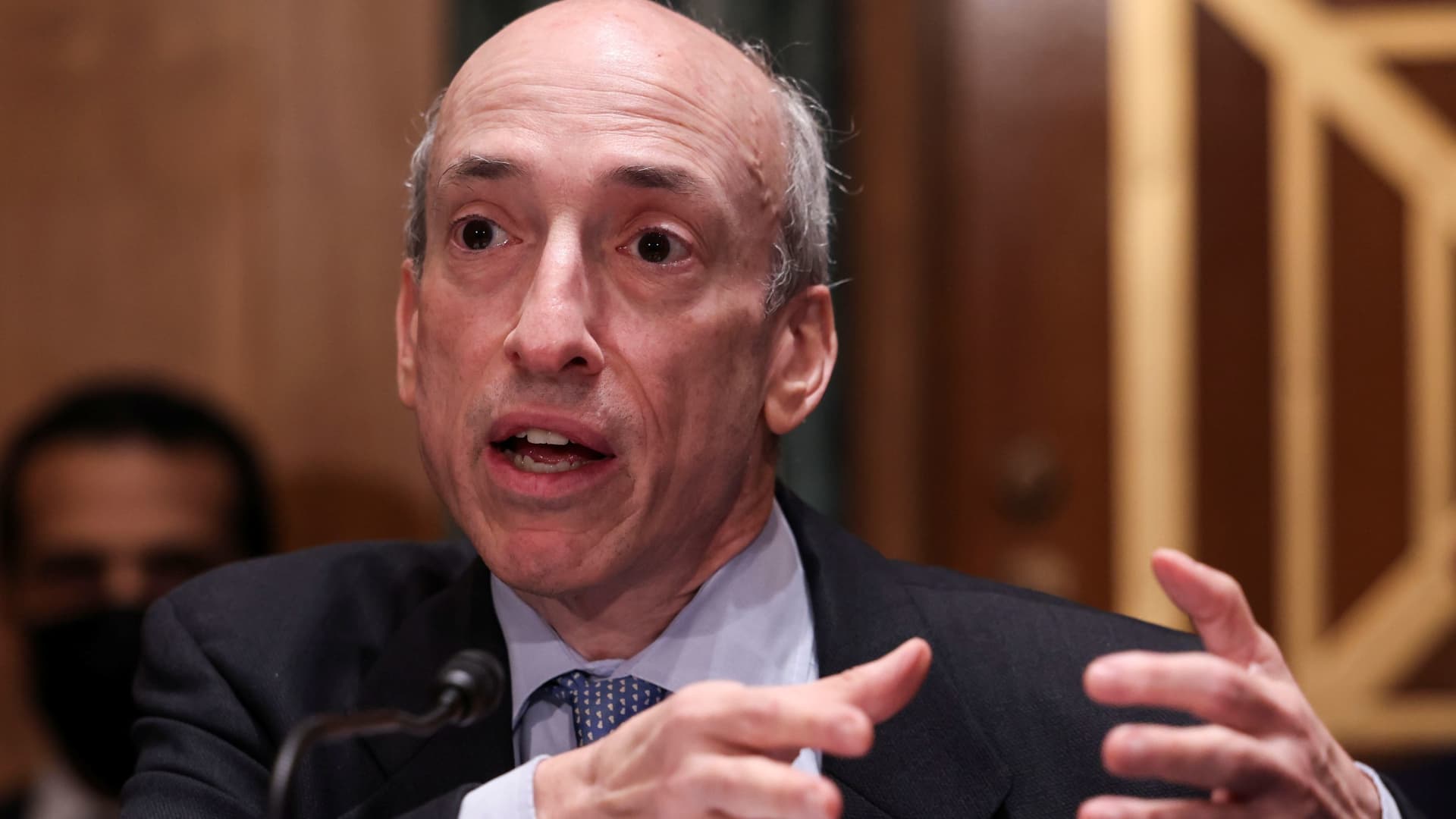
Securities and Exchange Commission Chair Gary Gensler said on Monday that his agency is aiming to exercise greater regulatory oversight of the $2 trillion cryptocurrency market to protect investors from an onslaught of scams.
In a speech delivered virtually, Gensler said the SEC plans to register and regulate crypto platforms, including working to separate out the custody of assets to minimize risk.
“These crypto platforms play roles similar to those of traditional regulated exchanges,” Gensler said, at the Penn Law Capital Markets Association’s annual conference. “Thus, investors should be protected in the same way.”
Gensler is providing details about his plans to address the crypto market almost a month after President Joe Biden signed an executive order calling on the government to examine the risks and benefits of cryptocurrencies. Last year, crypto assets worth more than $14 billion were stolen through a host of scams as well as cyberattacks.
The SEC, Gensler said, will partner with the Commodity Futures Trading Commission to address platforms that trade both crypto-based security tokens and commodity tokens, as the SEC currently only oversees those that trade securities.
Gensler compared crypto-asset platforms to alternative trading systems, which are used in equity and fixed income markets. The critical difference, he said, is that the latter is used primarily by institutional investors while crypto platforms “have millions and sometimes tens of millions of retail customers directly buying and selling on the platform without going through a broker.”
He said the SEC will look into whether crypto platforms should be treated by his agency more like retail exchanges.
Gensler also addressed what the SEC can do in the areas of stablecoins and crypto tokens.
Stablecoins are digital currencies designed to be less volatile than cryptocurrencies by pegging their market value to an outside asset like the U.S. dollar. Gensler said the $183 billion stablecoin market presents concerns, such as the potential use in illegal activity. Crypto-to-crypto transactions, he said, allow users to skirt the traditional banking system, making it harder to track money laundering, taxes and compliance.
Stablecoins are also often owned by crypto platforms, creating potential “conflicts of interest and market integrity questions that would benefit from more oversight,” Gensler said.
With respect to crypto tokens, the SEC chief said most of them involve entrepreneurs raising money from outside investors with the hope of creating a profitable business. Traditional companies raising capital from the public in such a fashion have to take the added step of filing significant disclosures with the SEC.
Gensler reiterated comments made by his predecessor, Jay Clayton, who said “most crypto tokens are investment contracts under the Howey Test.” He was referring to a 1946 Supreme Court ruling that a transaction is an investment contract when people are putting money into a “common enterprise with a reasonable expectation of profits to be derived from the efforts of others,” Gensler explained.
He added that regulators have long had effective ways to regulate financial markets, and the emergence of new technologies doesn’t mean we throw out the playbook.
“We ought to apply these same protections in the crypto markets,” Gensler said. “Let’s not risk undermining 90 years of securities laws and create some regulatory arbitrage or loopholes.”
WATCH: How fast-moving crypto start-ups lured top talent from Wall Street























